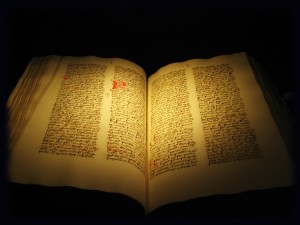Documentary heritage
Italian Documentary heritage
Due to the complexity and variety of the Italian documentary heritage, this brief guide is intended to give some general guidelines to better understand the chronological criteria of a Genealogical research (for details please refer to the individual research project and estimate).
The Italian documentary heritage is basically divided between ecclesiastical archives (diocesan archives and parish archives) and National archives (State’s archives, historical archives of the Town halls including the Registry Office).
Ecclesiastical archives
The most used archives for a Genealogical research are undoubtedly the parish archives, which retain the “quinque libri”, registries of baptisms, confirmations, marriages and deaths (burials) of the parishioners. Sometimes there are also a registry called “stati delle anime¹”. Such records begin immediately after the “Council of Trento²” (1563) and appear in the oldest parishes, depending on, or the recognition of the obligation or the institution of the parish. In some cases, due to the diligence of the parish priest, of that time, some archives contain registries that begin even decades before 1563.
In the the Parish archives are also preserved the “Austrian” registries (Civil Status: births, marriages and deaths) that were under the responsibility of the parish priest. In these registries (only in the regions of the former Kingdom of Lombardy-Venetia) there are additional indications, hardly present in the Canonicals acts (such as location and/or Status) and cover a period, approximately from 1815 to 1871. Registries within the last 70 years cannot be consulted³.
The registries are preserved almost always at the parish priest’s house, on site, but some diocesan administrations enable the registries to be deposited at the diocesan archives (certainly more organized). The diocesan archives may also preserve partial copies (paper) or a copy of the entire parish archive (microfilmed or on digital files) and other old documents.
The Ecclesiastical archives are governed by a rule approved by the CEI (Italian Episcopal Conference) in 1995. In truth, this rule has never been recognized as mandatory and it could be ratified in a different way by each diocesan administration and almost always ignored by the parish priests. So the time for research may be different, depending on the parish priests, on the diocesan archives or diocesan administration, ranging from situations of cortesy, availability and organization to total ostracism.
For the consultation of the Ecclesiastical archives there are no costs formally, but some diocesan archives charge a cost per hour (in addition to a fee for the reproduction of the documents). If the research is done directly in the parish archive, I always suggest to leave an offering to the priest, depending on the amount of research performed.
National archives
Other relevant documentation for a Genealogical research is preserved at the National archives. This documentation is often complementary, but in some cases necessary and consists of:
Notary acts. Generally from early XV century to late 1800, in the State’s archive;
Napoleonic Civil Status records (birth acts, marriage acts and death acts). Generally from 1806 to 1815, in the State’s archive;
Italian Kingdom Civil Status records and certifications (birth acts, marriage acts, death acts). Generally from 1866-1871 up to today (the last 70 years are under privacy law⁵), in the State’s archives, historical Municipality archives and Town hall’s Registry Offices – “Uffici di Stato Civile” (the latter are not freely consultable⁶.). In the Registry Office it is possible to also ask for a historical certificate of the Family (at the cost of € 5,16 per individual plus a revenue stamp of € 16.00). On these certificates, in addition to the birth dates, you can find information about marriages, deaths and migrations of the family members. Obtaining an historical certificate may take several weeks;
Military records. Generally from 1840 up to today (the last 70 years are under privacy law⁵), in the State’s archives.
Also useful, in some cases are ancient “land registries” (Napoleonic, Austrian and Austro-Italian), generally from 1807 to 1852, in the State’s archives.
These archives are governed by different specific by-laws and for their consultation there are no costs except for reproductions and certifications.
¹ registry in which the parish priest wrote down the names and the ages (often with dates) of the family members and the name of the place where the house was located (especially during the period of the blessings).
² http://en.wikipedia.org/wiki/Council_of_Trent
³ Canonical rule: art. 8, “Schema tipo di Regolamento degli Archivi ecclesiastici italiani” CEI 27-30 marzo 1995
⁴ Canonical rule: “Schema tipo di Regolamento degli Archivi ecclesiastici italiani” CEI 27-30 marzo 1995
⁵ Italian law: art. 177, comma 3, Decreto Legislativo 196/2003 e art, 107 del Decreto Legislativo n. 490 del 29 ottobre 1999
⁶ Italian law: art.37 del DPR 223/1989
